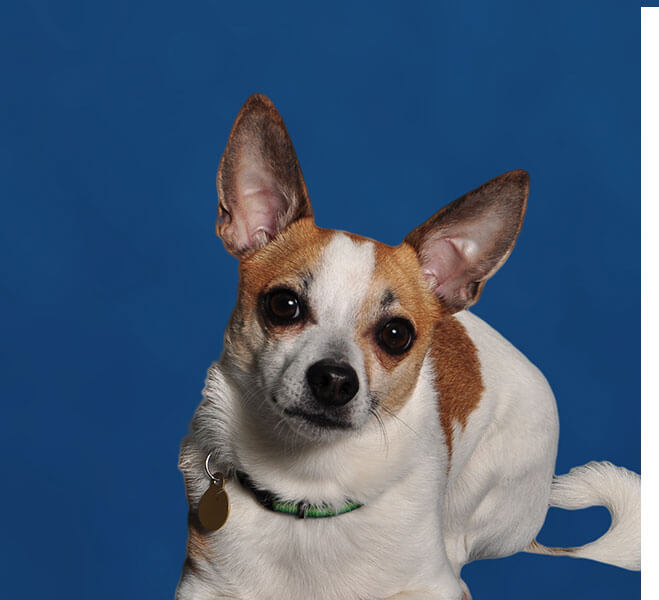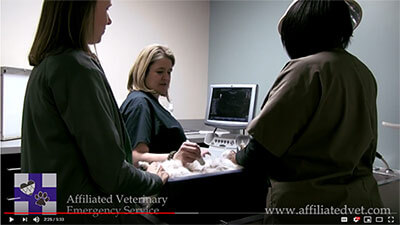Pet First Aid
If your pet has experienced a trauma, fall or other type of emergency and you need to administer first aid, please bring your pet to AVES immediately after; please do not substitute first aid for veterinary care. Your best action is to call us immediately if you have any questions about your pet. Here is a short list of first aid you can perform at home before you bring your pet to us for medical care:
- Have our telephone number, address and directions to our hospital handy at all times.
- Please be careful when handling your injured pet. Injured or traumatize pets may bite.
- Call us first for first aid information specific to your pet’s condition.
- Choking. Look to see if a foreign object is visible in the mouth. Do not try to remove this with your fingers or tools. You can perform a modified Heimlich procedure on your pet. Lift them up by their front legs, so they are standing on their rear legs. Place your fists under their rib cage from behind them. Push up sharply with your fists under their rib cage so that air in their lungs may help push the item out. Do no more than 3 times. Bring your pet in immediately to assess for any remaining objects in the mouth or throat and evaluate for any potential trauma from the object.
- External bleeding. Press a clean, thick gauze over the wound and apply pressure with your hand(s). Keep steady pressure for 3 minutes, then check to see if blood has started to clot. If it hasn't started to clot bring your pet to us immediately; severe bleeding can quickly be life-threatening.
- Fractures. Bring your pet to us immediately. Gently lay your pet on a flat surface for support while transporting your pet to us. Keep the pet as calm as possible and carry your pet if possible.
- Heatstroke. NEVER leave your pet in the car on warm days. Place a cool or cold, wet towel around your pet’s neck and head but not covering your pet’s eyes, nose or mouth. Rewet and rewrap the towel every few minutes as you cool off your pet. You can also pour or use a hose to keep water running over the animal’s body, especially the abdomen and between its hind legs and use your hands to sweep the water away from your pet as it absorbs the body heat. Bring your pet to us as soon as possible.
- Poisoning. Call the Animal Poison Control Center hotline (888-426-4435) or our hospital immediately. There are many products that are harmful for pets: rodent poisons, antifreeze, cleaning products, plants and foods. When you call us, please have the name or description of the substance that your pet ingested or was exposed to, the amount the animal was exposed to, and how long it has been since the exposure (i.e., how much chocolate did your pet eat and how long ago?). Bring your pet to our hospital and, if possible, the item that your pet was exposed to. Collect any material your pet may have vomited or chewed and place it in a plastic sealable bag to bring with you when you bring your pet to us.
- Seizures. If your pet becomes too warm (body temperature taken rectally > 103), apply wet towels to the head, avoiding the mouth and nose, and extremities. They should be transported immediately to the hospital for evaluation. This is a life threatening condition. Even if the seizure lasts for a short period of time, please bring your pet in for evaluation.
- Unresponsive. Keep your pet warm and quiet. Ensure that the head remains above the rest of the body during transport to the hospital, this will help to prevent fluid from the stomach entering the lungs causing suffocation. Keep the head and neck extended to allow the wind pipe to remain straight.
For more information, please visit
Animal Poison Control Center (Note: A fee of $65 applies per call.)
Killer Grapes and Other Concerns in Animal Poison Control
Pet Poison-Proof Your Home

